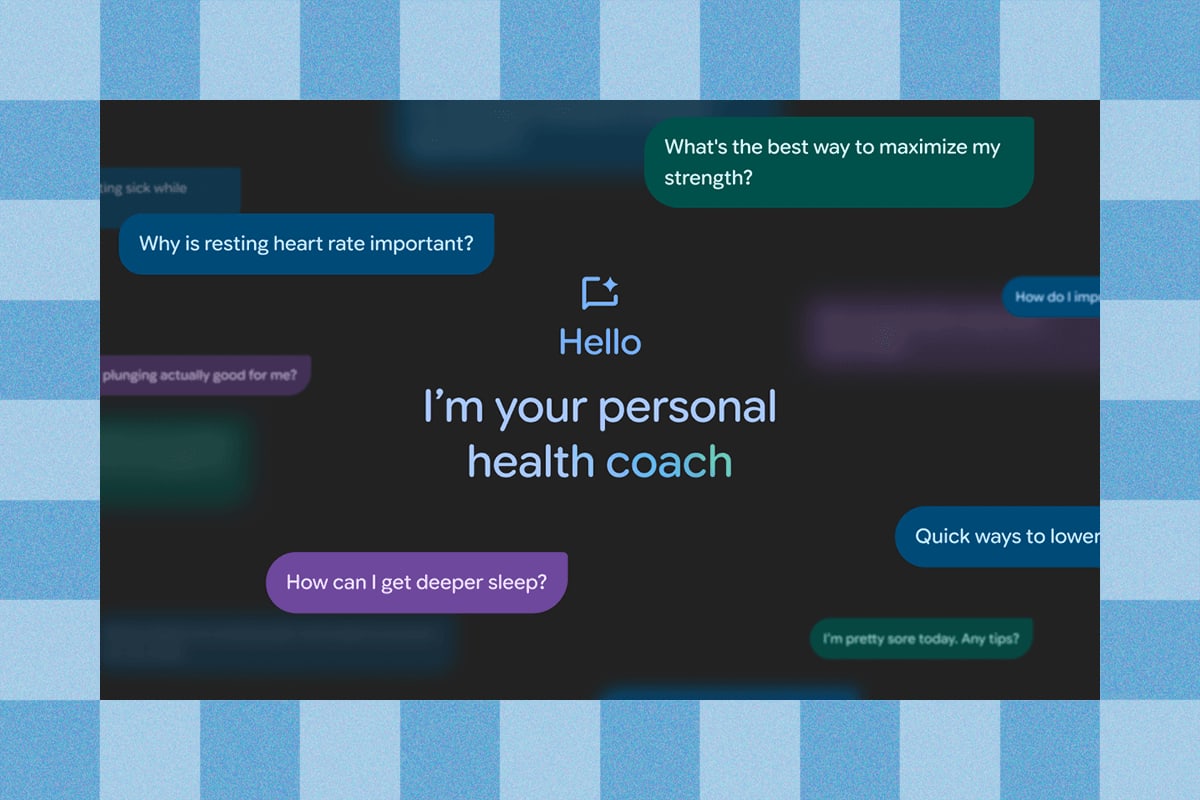The Evolution of Fitness: Google’s AI-Enhanced Fitbit App Sets a New Standard
 The Tech Times
The Tech Times
In a world where technology constantly reshapes our lifestyles, the integration of artificial intelligence into personal health management has become a cornerstone of innovation. The latest development in this sphere is Google's transformation of the Fitbit app into an AI-powered personal health coach. This evolution promises to redefine how users interact with their health data, offering a more personalized and insightful approach to fitness and wellness.
The Genesis of Wearable Fitness Technology
Wearable fitness technology has come a long way since its inception. The concept of tracking physical activity dates back to the early 20th century with the invention of the pedometer. However, it wasn't until the early 2000s that wearable technology began to gain significant traction. The launch of the first Fitbit device in 2009 marked the beginning of a new era, where health-conscious individuals could track their steps, calories burned, and even sleep patterns with unprecedented ease.
Over the years, Fitbit and its competitors have continually advanced the capabilities of their devices, integrating heart rate monitoring, GPS tracking, and more. However, the true potential of these devices lies not only in their ability to collect data but in their capacity to interpret it in a meaningful way for the user.
Enter AI: A New Dimension in Health Coaching
The latest upgrade to the Fitbit app, powered by Google's AI, takes this interpretation to a new level. Built on Google's Gemini AI technology, the app aims to provide users with a comprehensive health coaching experience. This AI-powered coach acts as a personalized consultant, offering insights and recommendations based on the user's health data.
Unlike a human health coach, the AI can process vast amounts of information quickly, analyzing trends and patterns in a user’s data to provide tailored advice. While it is not a substitute for professional medical advice, this digital coach is designed to empower users with knowledge about their health, encouraging them to make informed decisions about their lifestyle.
The Historical Context of AI in Health and Fitness
The integration of AI into health and fitness is not an overnight phenomenon. In the past decade, AI has been increasingly utilized in various sectors of healthcare, from diagnostic tools to patient monitoring systems. In fitness, AI algorithms have been employed in apps to suggest workouts, track progress, and even provide virtual coaching.
Google's step to integrate AI into Fitbit signifies a natural progression in this trend. The acquisition of Fitbit by Google in 2019 hinted at the potential for such a development, marrying Fitbit's robust data collection capabilities with Google's expertise in machine learning and AI.
A Future of Personalized Health Management
The AI-powered Fitbit app is a testament to the growing trend of personalized health management. As technology continues to advance, the potential for AI to enhance our understanding of personal health is immense. This evolution could lead to more accurate predictions of health issues, early interventions, and ultimately, a healthier society.
While the technology is still in its relative infancy, the possibilities it presents are boundless. The convenience of having a personal health coach in one's pocket, ready to offer advice and encouragement at any time, represents a significant leap forward in personal health management.
Conclusion: A New Era of Empowerment
With the introduction of AI into Fitbit's app, Google is not just enhancing a product but is also empowering individuals with the tools they need to take control of their health. As we move forward, the role of AI in personal health is likely to expand, offering more precise, real-time insights and fostering a deeper understanding of our bodies.
This development is a reminder of the profound impact technology can have on our daily lives. As we embrace these innovations, it is crucial to consider the ethical implications and ensure that such technologies are used to promote well-being and health equity across the globe.
Source: The Fitbit App Is Turning Into an AI-Powered Personal Health Coach
Subscribe to my newsletter
Read articles from The Tech Times directly inside your inbox. Subscribe to the newsletter, and don't miss out.
Written by
